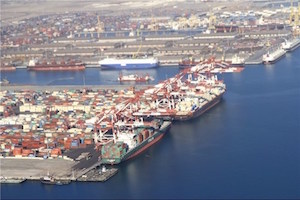ISIS Reaps Gains From the Pakistan-India Rivalry in Afghanistan
By Umair Jamal
July 21, 2020, the CACI Analyst
The growth of the terrorist organization known as the Islamic State in Iraq and Syria (ISIS) in Afghanistan poses a formidable challenge to India and Pakistan’s security interests in the region. Recently, an ISIS-claimed attack on a Sikh Gurudwara in Afghanistan involved a suicide bomber from India. On April 4, Afghan security forces arrested a Pakistani national and a high-ranking ISIS commander in Afghanistan, who authorized the Gurudwara attack. Reports indicate that ISIS is rapidly gaining recruits from India and Pakistan for its Afghanistan and Central Asia operations. The emerging threat in this regard would require close counterterrorism cooperation between Islamabad and New Delhi if the group is to be successfully defeated in Afghanistan. However, given Pakistan and India’s competition and record of undermining each other’s interests in Afghanistan, ISIS is set to gain exponentially in the coming months.
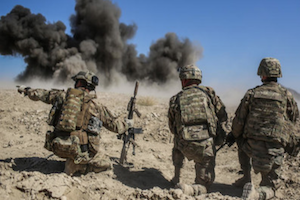
India Wins Defense Deal with Armenia
By Fuad Shahbazov
June 1, 2020, the CACI Analyst
On March 1, 2020, India outperformed Russia and Poland in a US$ 40 million defense deal with Armenia to supply it with four domestically made SWATHI counter-battery radars. The system is developed by India’s Defence Research and Development Organization (DRDO) and manufactured by Bharat Electronics Limited (BEL). It provides accurate information on enemy artillery firing positions weapons up to 75 kilometers away. The decision came amid India’s growing efforts to boost its national “Make in India” brand in the defense industry sector, which could make new inroads into European, Middle Eastern and Asian defense markets. However, the new Indian – Armenian defense deal could undermine Delhi’s relations with Russia on the one hand, and Azerbaijan, Turkey and Pakistan on the other.
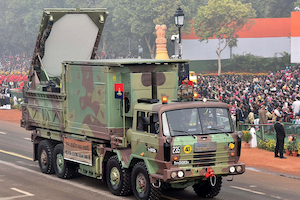
Uzbekistan's Significance in India's Central Asia Policy
By Niranjan Marjani
February 27, 2020, the CACI Analyst
Uzbekistan’s Foreign Minister Abdulaziz Kamilov visited India on January 14-15, 2020, where he met with his Indian counterpart Subrahmanyam Jaishankar and addressed the Raisina Dialogue, an international conference organized by India in which several foreign delegates share their views on global issues. This was one of several recent engagements between India and Uzbekistan. Uzbekistan has emerged as the Central Asian country with which India has not only accelerated but also diversified engagements in the past few years. This is evident from the increasing number of bilateral visits between the two countries as well as cooperation in an increasingly diverse number of areas.
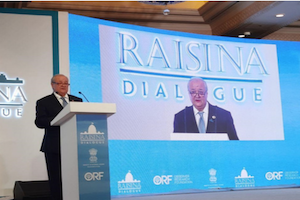
Afghanistan-Iran Trade Corridors to Bear Fruit for Both India and China
By Tristan Kenderdine
July 17, 2018, the CACI Analyst
A strategic deployment of trade corridors is taking shape across Afghanistan and Iran as both India and China subvert each other’s trade strategies through key geoeconomic states. Afghanistan’s land corridor to Chabahar port connects it to India by sea, creating a Persian-Gulf to Caspian Sea corridor, while the Afghan air corridor to India provides a parallel, more direct trade route. By contrast, China’s twin economic corridors in the region run perpendicular: north-south through Pakistan to the Gulf, and east-west through Iran to Istanbul. Pakistan’s Gwadar and Iran’s Chabahar are thus effectively in the same geopolitical node, connecting very different Great Game trade strategies.
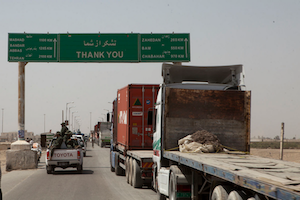
Iran's Chabahar Port Empowers India-Afghanistan Trade at Pakistan's Expense
By Sudha Ramachandran
January 10, 2018, the CACI Analyst
On November 11, a consignment of 15,000 tons of wheat arrived in Afghanistan from India via Iran’s Chabahar port. This is an important milestone for the three countries as it marks the operationalization of the transit trade agreement they signed in 2017. In addition, the first phase of the development of Chabahar port has been completed. It is expected to energize Iran’s economy and provide India with a gateway for overland access to Afghanistan and the Central Asian states. Importantly, landlocked Afghanistan now has another outlet to the sea, reducing its dependence on Pakistani ports. This will reduce Islamabad’s influence over Afghanistan.
